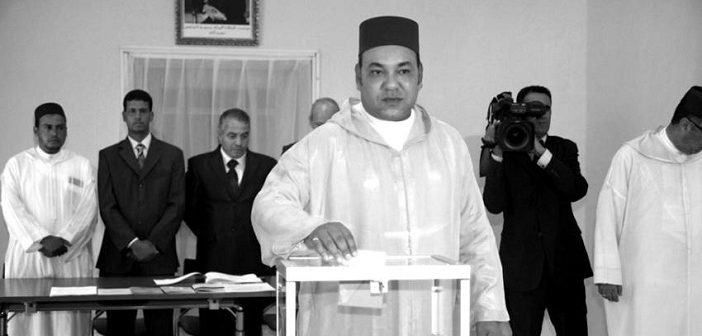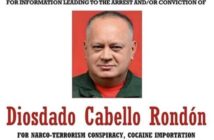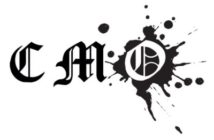The result of Morocco’s general election held on the 7th of October has solidified the Justice and Development Party’s (PJD) position in the government. The country’s political system doesn’t resemble Western-style liberal democracy, but the coalition parties, which form the government play a role in the country’s governing, although the ultimate power rests with King Mohammed VI.
The PJD headed by the extravagant Abdelillah Benkirane, has won all elections since the new constitution was adopted in 2011 at the height of the Arab Spring. The party has gained power and leverage towards King Mohammed VI ever since. With the constitution obliging the King to choose the Prime Minister from the biggest party in parliament, his hands are tied, and the royal palace is forced to work together with Benkirane in some areas.
Before the constitution was amended in 2011, the PJD was more opposed to the ruling monarchy than it is today. Historically its leaders and adherents did not support the King, and strived for an Islamic democracy. Even with its growing power base, the main policy priorities for the party haven’t changed, which are economic and legal issues, along with the promotion of human rights and democracy. Today, by being in power the PJD accepts that the royal palace controls everything related to security, religion and overall policy choices, but has some independent power in governing.
Benkirane realizes where the limits are. The King needs a cooperating government as much as the government needs the blessing of the King to push forward with reforms. This tacit cooperation has somewhat furthered the Moroccan democratic system, but has brought about mixed results.
There are major investments taking place in the country, such as the high profile Kenitra-Tangier high-speed rail line which is similar to the French TGV. In contrast, the 7% GDP growth set by Benkirane has all but failed. During the PJD’s first term the growth rate was between 3% and 5% but in this election year, the economy has stagnated and the growth is around 1%, nowhere near enough to give jobs to the youth entering the job market.
Especially since 2011 there has been a limited but important progress in democracy, and human rights, but torture still exist. Around 3500 Moroccan’s fight for the Islamic State, and the Salafi-Wahhabi influence grows with the Saudi investments on the ground.
The government has recently signed a security cooperation deal with France and Belgium, and played an important role in locating Abdeslam, the supposed mastermind of the attacks last year. It is apparent that Moroccan jihadists do not receive gentle treatment by the efficient security agencies….
Morocco has so far well handled the threat that the IS ideology poses to the state. Since the royal palace controls the main theme for Friday sermons, it has been difficult for hard-line Salafists to organize against the state, and Morocco has been spared of attacks. This, along with the ever-present security services, which conduct raids on a weekly basis on IS adherents, has solidified the stability in the country until now.
Morocco is nevertheless in a precarious neighbourhood, which the King realizes and acts accordingly. On the Moroccan border, in the south of Algeria militant attacks are taking place regularly. Mali is not far away, and is falling apart, and next to Algeria, Libya has already fallen. The region’s most powerful country, Egypt, has IS presence in the Sinai. So far Morocco has been spared, but change could come.
King Mohammed VI like his father Hassan II has been a strong ally to the west historically, but the royal palace has been flirting with other major powers. During the spring Mohammed VI visited Putin in Russia, and went on to China as well. Later, on the 20th of August, on the People’s revolution day, commemorating the exile of Mohammed V, the King gave a high-profile speech attacking the western powers. Stating that Morocco, unlike the west “was never made with the intention of exploiting the continent’s assets and natural resources – unlike neo-colonialist practices” could be a sign showing a shift of allegiances. Only time will tell if there is a change of foreign policy, and if that will happen it will be the decision taken by the royal palace, not the governing PJD coalition.
Inside Morocco business as usual continues, with the royal palace deciding on policy, and the government shaping the country’s future accordingly. The most that the PJD can hope for is the continuing dialogue taking place between Benkirane and the King.
The governing PJD is the most popular party in Morocco by looking at the result of the general election. It received 32% of the votes, up from 23% compared to the election in 2011. Behind the PJD came the Authenticity and Modernity Party (PAM), which has close links with the monarchy, with 26%, gaining as well from the previous election. At third place comes the monarchist and conservative party Istiqlal, which has been stagnating at 12% since it lost the first place in 2011 and entered a coalition with the PJD.
Relying solely on the result of this election, it seems that the majority of the population has voted for an Islamist democratic party, the PJD, which historically has been opposed to Mohamed VI. They govern hand-in-hand with the King, but is less of a puppet of him than PAM, which was set up by one of his close friend, or Istiqlal. However, the participation in this election, just as the last one in 2011, doesn’t paint such a bright picture for the Moroccan multi-party democracy. Down from 45% to 43% according to official numbers, two out of ten eligible voters chose the PJD, which has to form a coalition to have a majority in the parliament.
By judging from the drop in participation, which was even low in the first place, we can see that the public’s belief in the Moroccan democracy is low. The ultimate power rests with the King, who can dissolve the government whenever he wants, and has the judiciary system under his total control. The west however, doesn’t seem bothered too much, and prefers the stability of the country, at the expense of democratic advances, which are said could empower Islamists, and potentially destabilize the country, which is in an already fragile neighbourhood.
The King doesn’t shine away from hitting back at the government for his own benefit. On the 14th of October, during a speech to the Parliament, he openly attacked the government: “Some people take advantage of the mandate granted to them by the citizens to run public affairs, giving precedence to personal and party interests over public interest, for electoral considerations.” He also said “It goes without saying that citizens resort to me because they find doors shut.”
By saying this, the King kills two birds with one stone: He portrays himself as the guardian and the saviour of hope of the people, whilst putting all blame and shortcomings on the government. Because of Mohammed VI’s vast powers, the PJD can do nothing but listen without responding. On the street when protests are taking place, it is against the government and Benkirane, since insulting the King is punished.
The ultimate power rests with Mohammed VI. When the public pressure was mounting in 2011, he made some changes, which have turned out well for him. If the economy is performing badly, or the state functions badly, all the blame is put on the government. Both by the royal palace and the public. Who else could Moroccans protest against since insulting the King is prohibited?
Fear is well utilized by the security services. Torture is mostly reserved for radical Islamists currently, but by pushing the wrong button, anyone can get the same treatment, any time, if the King so decides. No party and no government in Morocco can protect its citizens. But they get all the blame.




